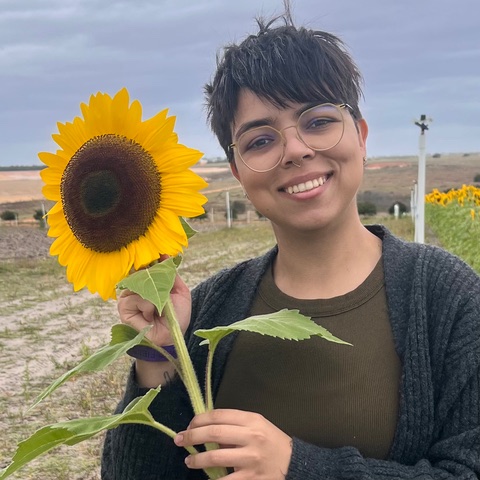
Introduction: Belen Lopez
I applied for this fellowship because…
I recognize that change must happen sooner rather than later. A movement to localize our food systems has taken root throughout our local communities and the world. I want to play a larger role in ensuring its success by focusing on the food systems that provide sustenance to communities all the while engaging in a healthy relationship with the land, people, and earth as a whole. While learning is vital, making connections is equally important. Understanding other cultures as well as the regions in which they live is an important aspect of encouraging others to participate and improve their food systems. When we can tailor what we grow to our cultures, it generates a stronger connection to that effort and to the land. Growing and nurturing our food becomes just as central as making a meal to share with our friends and family. I feel confident that Groundwork will broaden my knowledge so that I can support my community and inspire others to do so as well.
What interests you in a fellowship where you will live simply?
I’ll admit that my farm or rural life experience is minimal, but I’m ready to immerse myself in that setting. While I have goals of running a small organic farm, my main mission with Groundwork is to learn. I also recognize that simply studying food systems and agriculture is only half of the answer. The way we live in today’s world must change to more earth-centered techniques. Technology could be used as a tool to improve the environment and empower individuals to grow food and meet their fundamental needs, like water and electricity, by respectfully using the environment around them.
What are the benefits and challenges of community?
I believe that the benefits of community are a result of overcoming challenges. Throughout my experiences living and working with others I have found that being open and honest leads to more valuable connections where we were able to rely on one another and anticipate needs. In “Braiding Sweetgrass,” Robin Wall Kimmerer describes the findings of a study conducted by one of her students that describes how Sweetgrass relies on “…humans to create the disturbance that stimulates…” its growth. In the human world, “disturbance” can just be talking with one another. Disrupting the status quo in any environment may be uncomfortable but, without that disturbance, without acknowledging the difficulties in our communities, we do not have the opportunity to evolve, to learn better ways of engaging, or to build our connections and communities. I hope to live in a world where we often offer these opportunities to each other.
What are your goals for the fellowship?
My main objective is to learn everything I can, and I think the best way to accomplish this is to dive right in and give it my all. I want to understand how to coexist with the land and its inhabitants in a mutually beneficial manner. The focus of this semester on resisting capitalistic impulses really caught my attention, especially in light of the growing awareness of how capitalism has not only got us to this difficult situation but also how it keeps us from moving past it.